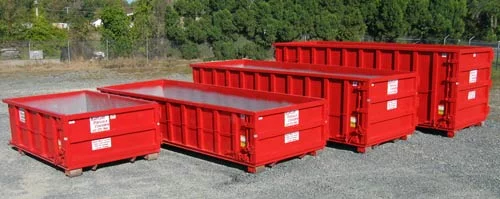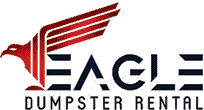Never rented a dumpster before? That’s okay. Few people describe themselves as “dumpster experts”. Many people will only rent a dumpster once or twice in their lives.
With that in mind, let’s teach you some of the most important things to know about renting a dumpster.
Local Companies Versus the Big Guys
There are two broad types of dumpster rental companies: local haulers versus some of the biggest, nationwide companies.
While you may be tempted by the flashy websites of some of the bigger companies, local haulers are typically the better option. Local haulers will typically help you save a lot of money: they just don’t have the overhead costs of some of the larger companies.
Plus, if you care about your local economy, then you know that the money you spend on a local hauler will typically stay within your region.
Of course, that’s not to mention things like personalized level of service – something the local guys typically do better than nationwide companies.
How to Rent a Dumpster
Renting a dumpster is straightforward. Here’s the basic process.
First, there are multiple sizes of dumpsters. These dumpsters are all different, but they have one important thing in common: they’re measured in square yardage.
When someone says they’re renting out a “10 yard” dumpster, it means that dumpster can hold up to 10 cubic yards of debris. The exact dimensions of that dumpster could change, but the total amount of waste it can hold remains the same. Measuring cubic yards is as easy as going 3ft x 3ft x 3ft.
The dumpster company will deliver a dumpster to your address, then you fill it up with material. The dumpster rental company come and picks up the dumpster, then takes it to the dump. You pay a “tipping charge” based on the amount of material the dumpster company left at the dump.
The dumpster delivery truck will drive over a weight scale going into the dump, dump out the material inside the dumpster, and pass over the same scale on the way back out, paying an amount based on the difference between the entry and exit weights.
If you have unique materials that require more complex disposals, then you may need to pay special overage fees to the dumpster company, because they’ll pay these fees to the dump.
How Do Overage Fees Work?
Dumpster rental companies will sometimes charge overage fees. These overage fees are based on your estimated usage of the dumpster.
For example, a company may rent out a 10 yard dumpster for $250, estimating that it will be filled with 1,000 pounds of material. If you go over that limit – say, by placing really heavy stuff in your dumpster, then you may need to pay an overage fee.
Be careful with overage fees: some dumpster companies will intentionally set their dumpster limits low, knowing that you’ll probably go over the limit. Then, they can charge more lucrative overage fees. Always ask for weight limits and overage fee information upfront.
How to Avoid Damaging your Driveway
One of the biggest hazards in the dumpster rental industry is damage to the customer’s property.
In most cases, this damage comes in the form of scratches on the driveway: the metal dumpster container and the metal wheels on the rear of the container can make contact with the concrete, scratching it and leaving visible damage. This is particularly problematic with older driveways.
Fortunately, the scratches always look a lot worse than they actually are: many customers are surprised to find they can pressure wash these scratches away in just a few seconds.
Talk to the dumpster professionals at Eagle Dumpster Rental and we’ll help you find the best place to put a dumpster on your property.
